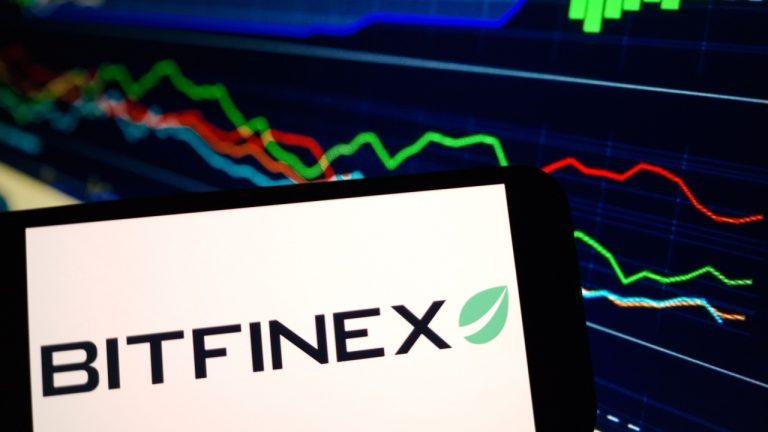The regulatory struggles of crypto are evident. Despite the growing adoption of digital assets across almost every industry, there has been a significant lack of regulatory clarity. In the US, the Securities and Exchange Commission (SEC) has relentlessly pursued restrictive regulation on crypto for the past few years.
Although Ripple and Grayscale secured milestone victories over the SEC in October, regulators continue to scrutinize centralized exchanges and traditional institutes that support digital asset integration, and the latest legal drama involving Binance precisely proved this tendency.
The UK has recently seen how the Financial Conduct Authority’s (FCA) strict rules on crypto marketing have forced many growing businesses, such as Binance, to either rethink or cease their operations in the country. Amidst this regulatory muddle, Switzerland has established itself as a friendly hub for digital asset firms.
Canton of Zug, also known as the ‘crypto valley of Switzerland’, has accepted cryptocurrencies for tax payments since 2021. From leading banks like the Cantonal Bank Zug providing crypto services to increasingly implementing crypto ATMs and clear taxation laws, Switzerland is setting standards for how crypto should be regulated and adopted under an effective legal framework.
So, how can other countries learn from Switzerland’s progressive stance, and why should digital asset businesses think about establishing their base in the country?
Switzerland's Progressive Approach to Regulations
Switzerland's approach to cryptocurrency regulation presents a compelling case study for global regulators and the financial world. The country has established a thriving blockchain ecosystem, thanks in part to the fact that Switzerland classifies cryptocurrencies as an asset class, similar to property or gold, rather than as a security.
This classification by the Swiss Federal Tax Administration (SFTA) subjects cryptocurrencies to wealth, income, and capital gains taxes in a transparent manner, removing ambiguity in the sale or transfer of virtual currencies. Cities like Zurich and Zug have been pioneers in integrating digital assets into everyday transactions, further solidifying Switzerland's position as a leader in this domain. Even private banks like Santander have started offering crypto trading services for its Swiss clients, which would’ve been met with significant pushback in other countries.
JUST IN: Santander Private Banking International to offer #Bitcoin trading and investing services to its high net worth clients with ???????? Swiss accounts ???? pic.twitter.com/0v2qWp8XPN
— Bitcoin News (@BitcoinNewsCom) November 20, 2023
The Swiss Financial Market Supervisory Authority (FINMA) oversees virtual currency regulation, which includes decentralized finance (DeFi). It has legalized cryptocurrency exchanges in the country, provided they obtain the necessary licenses. The country offers fintech, exchange, investment funds, and banking licenses to eligible firms, ensuring compliance with the Anti-Money Laundering Act.
Switzerland's regulatory framework and favorable tax laws have attracted prominent crypto companies like Ethereum and Solana to establish their headquarters in the country. Over 1,000 blockchain and cryptocurrency businesses have chosen Switzerland as their base, contributing to the country’s push toward green financing.
Most importantly, the Swiss corporate income tax (CIT) system is structured to support business growth. Resident companies are subject to CIT at the federal, cantonal, and communal levels, with foreign-source income excluded from the Swiss tax base. The overall maximum CIT rate varies between 11.9% and 21.0%, depending on the location within Switzerland.
Since 2020, most cantons have reduced their CIT rate, aiming for an effective tax rate of 12% to 15%, with internationally accepted replacement measures like an OECD-compliant patent box and R&D super deductions.
This comprehensive regulatory framework, coupled with an environment that fosters innovation and growth, makes Switzerland an exemplary model for crypto regulation and the optimal choice for growing businesses.
How does Switzerland Compare with EU countries?
The advantages of Switzerland are more obvious when compared to any EU country under the Markets in Crypto Assets (MiCA) regulatory framework. Set to take effect in 2024, the MiCA regulations introduce comprehensive rules for the crypto sector across the EU. It aims to facilitate legal certainty for businesses and attract more investment in the 27 countries it applies to.
Among EU countries, Germany is emerging as a leading contender for a European hub for major crypto firms like Binance and Circle, yet Switzerland, although not part of the EU, still stands out. In most EU countries, cryptocurrencies are taxed as income, yet Switzerland considers them private assets.
???? #MiCA rules will enter into application in Dec. 2024. Until then, holders of crypto-assets and clients of crypto-asset service providers will not benefit from any EU-level regulatory and supervisory safeguards or recourse mechanisms.https://t.co/HPcqw96QmA pic.twitter.com/mDJKUnygU9
— ESMA - EU Securities Markets Regulator ???????? (@ESMAComms) October 17, 2023
FINMA has established a regulatory sandbox for testing new crypto products and services, which is a more robust approach compared to MiCA, which only emphasizes assessing white paper risk warnings. Along with government initiatives supporting the crypto ecosystem, these factors make Switzerland difficult to dispute as the more attractive destination for crypto investors and businesses.
The Swiss Advantage for Businesses
Working with Swiss-based Web3-connected financial companies offers distinctive advantages, particularly in how they bridge traditional banking with the crypto industry. Swiss banks like Maerki Baumann and Cantonal Bank Zug are increasingly embracing blockchain technology to counter challenges like intense competition and margin erosion. By integrating blockchain, these banks seek alternative revenue sources and aim to rejuvenate their client base, attracting younger, tech-savvy customers.
Several Swiss banks like Falcon Private Bank, Vontobel, and Julius Bär are collaborating with crypto specialists to offer trading and asset storage options. This integration illustrates a growing trend where traditional financial institutions are acknowledging the potential of blockchain and cryptocurrencies.
Banks like Maerki Baumann have also taken unique steps like offering corporate banking accounts to startups, particularly those raising capital through Security Token Offerings, underscoring their commitment to supporting the Web3 sector. Brighty App, a Zug-based Web3-powered neobank, helps businesses with robust cross-border payments and payouts via its Brighty Business platform.
Yet, there have been several criticisms about the country’s crypto-friendly stance, as policymakers often claim that loopholes in the regulations help to harbor more crypto-related crimes and scams. However, these criticisms often don’t take into account the stringent Know Your Customer (KYC) and Anti-Money Laundering (AML) measures, which ensure strict compliance with legal and ethical standards. Switzerland also revisits and reforms these regulations continually to ensure an optimal balance between innovation and security.
Switzerland: the Forward-Thinking European Crypto Hub
It’s evident that Switzerland is an ideal blueprint for crypto regulation for the rest of the world. Its emergence as a leading hub for crypto firms and fintechs is underscored by its progressive regulatory framework, favorable tax policies, and a synergistic relationship between traditional banking and the blockchain industry.
This environment attracts many crypto and Web3 startups and inspires confidence among institutional investors and traditional financial institutions, cementing Switzerland's status as a premier destination for forward-thinking fintechs and a model for effective crypto regulation.
This article was written by Nikolay Denisenko at www.financemagnates.com.
You can get bonuses upto $100 FREE BONUS when you:
💰 Install these recommended apps:
💲 SocialGood - 100% Crypto Back on Everyday Shopping
💲 xPortal - The DeFi For The Next Billion
💲 CryptoTab Browser - Lightweight, fast, and ready to mine!
💰 Register on these recommended exchanges:
🟡 Binance🟡 Bitfinex🟡 Bitmart🟡 Bittrex🟡 Bitget
🟡 CoinEx🟡 Crypto.com🟡 Gate.io🟡 Huobi🟡 Kucoin.




















Comments